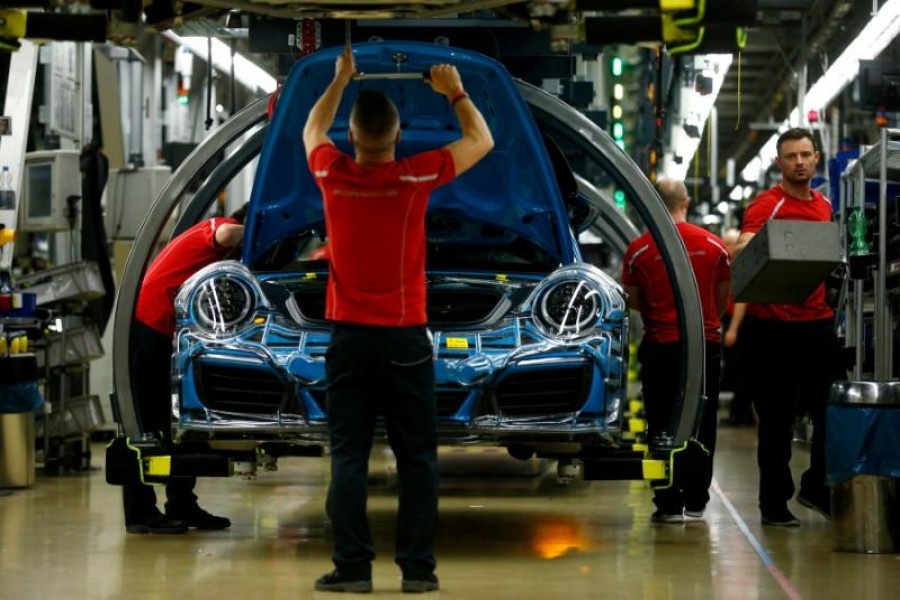Euro zone factory growth slowed to an 18-month low in June, slipping for the sixth month in a row amid widespread concerns about trade barriers and their impact on overall economic activity, a survey showed on Monday.
IHS Markit’s June final manufacturing Purchasing Managers’ Index slipped to an 18-month low of 54.9 from May’s 55.5, a touch lower than a flash reading but still well above the 50 level that separates growth from contraction.
The output index fell to 54.2 from 54.8 in May, its lowest since November 2016.
“Euro zone manufacturing reported its weakest expansion for one-and-a-half years in June, with risks clearly tilted toward output growth waning further in coming months,” said Chris Williamson, chief business economist at IHS Markit.
“The survey reveals mounting worries from companies relating to the impact of tariffs and trade wars, suggesting firms are bracing themselves for the potential for further export losses... Business expectations for future production deteriorated in June to the lowest since November 2015.”
Still, despite a more subdued growth and inflation outlook, the European Central Bank is expected to end its asset purchases by year-end as scheduled, according to a Reuters poll of economists who said the risk that the programme extends into next year was low, Reuters reported.
But there was also nothing in the PMI report to suggest factories in the currency bloc will regain their robust activity levels of late last year. New orders growth in June slid to its lowest in nearly two years to 53.2, down from 54.2 in May.


